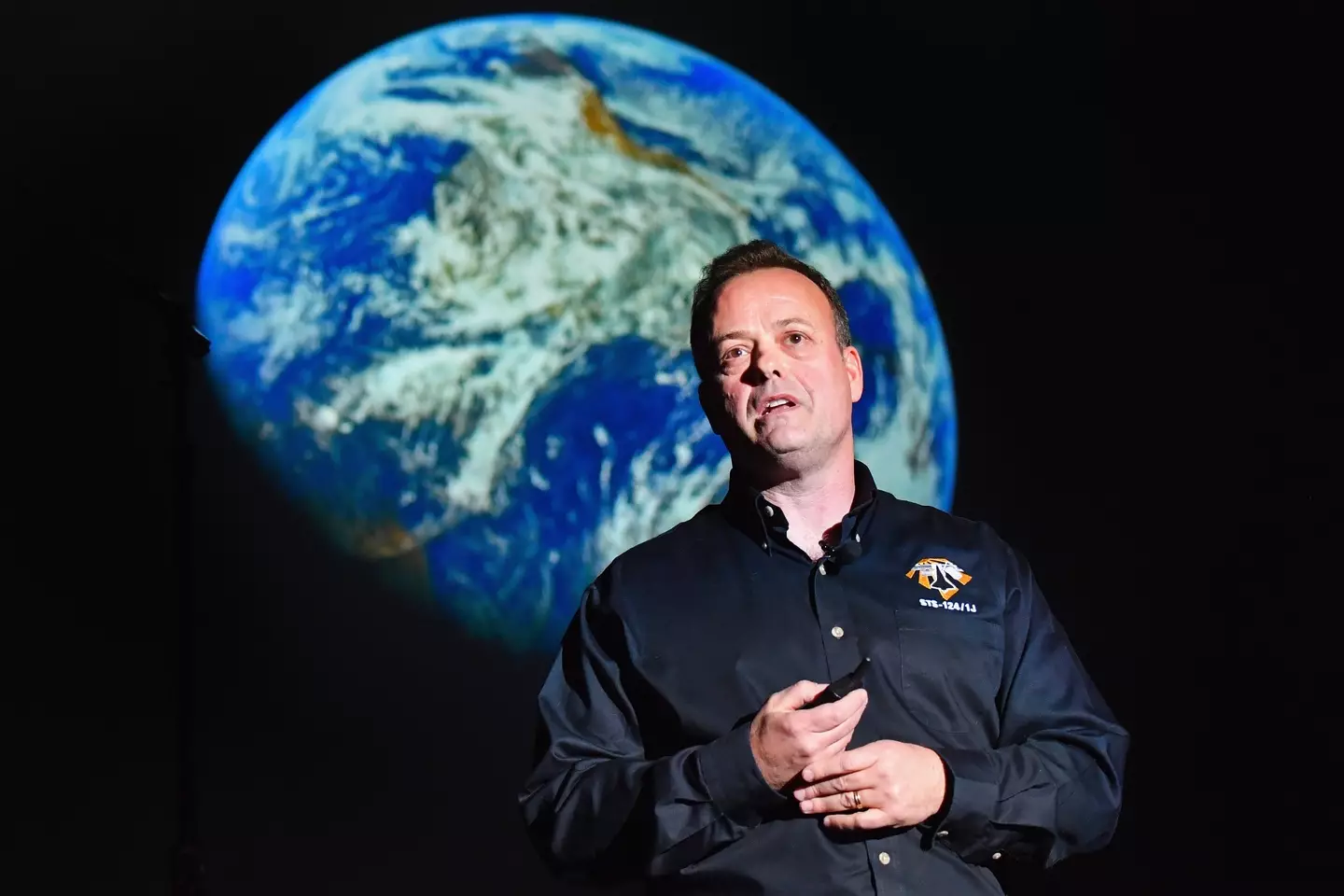You can only imagine what sort of things are running through an astronaut’s head as they get a view of our planet from space – but I think ‘it’s a long way down’ might be a top contender.
But for former NASA space cadet Ron Garan, 62, there was only one thing on his mind… the ‘clear understanding’ that we Earthlings are ‘living a lie’.
And no, it’s not like the Flat Earth brigade was right all along. Actually, it is something LOT more convincing.
Just put yourself in Garan’s suit for a second and imagine what he was thinking as he had an uninterrupted view of our globe and experienced what is known as the ‘summary effect’.
For those who don’t know, the term describes the cognitive change many astronauts feel when they catch a glimpse of Earth while floating in space – which the researchers liken to a ‘self-transcendent quality of fear’.
This phenomenon can cause a ‘sudden and overwhelming thrill’ for those brave enough to roar in a rocket, which to be honest shouldn’t be that surprising.
I mean, they’re seeing something that only a few mortals will ever understand – I’m sure I’ll be in my feelings too.
That’s exactly the experience Garan had as he spent 178 days in space, traveling more than 71 million miles in 2,842 orbits throughout his NASA career.
With the unique perspective of the world he got from his time on the International Space Station (ISS), he drew some very interesting conclusions about our way of life looking out the window.
Speaking to Big Think, the New Yorker said he realized that the things most people worry about aren’t a big deal after all – but we should be LOT more concerned about global warming, deforestation and loss of biodiversity.
NASA astronaut Ron Garan had quite the awakening while in space (ALEXANDER NEMENOV/AFP via Getty Images)
Discussing what he witnessed, Garan explained: “When I looked out the window of the International Space Station, I saw flashes of lightning storms like paparazzi, I saw dancing curtains of auroras that seemed so close, as if we could reach out and touch. those.
“And I saw the incredible thinness of our planet’s atmosphere. In that moment, I was struck with the sobering realization that that paper-thin layer keeps every life on our planet alive.
“I saw an iridescent biosphere teeming with life. I didn’t see the economy. But since our man-made systems treat everything, including our planet’s very life support systems, as a wholly owned subsidiary of the global economy, it is it is clear from the perspective of space that we are living a lie.”
Looks like Elon Musk needs to get that SpaceX rocket sorted pronto so we can all see this for ourselves.
“It’s clear from the point of view of space that we’re living a lie,” Garan continued. “We need to move from thinking economy, society, planet to planet, society, economy. That is when we will continue our evolutionary process.
“There’s a light bulb that goes on where they realize how interconnected and interdependent we all are.”

The 62-year-old returned to Earth with a new perspective after experiencing the ‘mirror effect’ (Erika Goldring/Getty Images)
Since his feet are back on solid ground, Garan has passionately advocated for caring for our planet while encouraging people to put each other before the rat race that is modern life.
“We will not have peace on Earth until we recognize the basic fact of the interconnected structure of all reality,” Garan added—and he’s not alone in this thought process.
Astronaut Michael Collins who flew on Apollo 11 said he was amazed at how ‘fragile’ and ‘small’ the Earth seemed, while Edgar Mitchell of Apollo 14 said the experience gave him an ‘explosion of consciousness’.